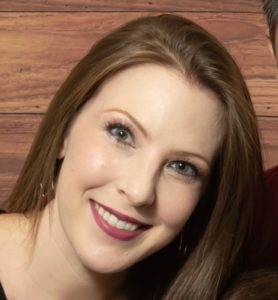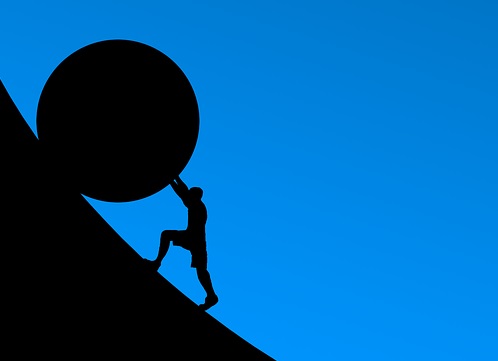“Life is not a matter of holding good cards, but of playing a poor hand well.” – Robert Louis Stevenson
“Privilege” is one of the buzzwords that we increasingly hear of late. It is often tinged with a bitterness or an accusatory tone. We are told to be aware of our “privilege,” and we are sometimes silenced because our “privilege” does not allow us to speak on certain issues. The list of those issues is getting longer and longer. White people cannot comment on minority issues. Straight people cannot comment on gay issues. Males cannot comment on female issues, etc. The “privilege” accusation becomes a shackle for the privileged and a win-the-argument-free card for the one claiming to be on the wrong side of that privilege. It shuts down discourse and ideas.
Recently, students at UC Berkeley tried to stop a test that was about to be administered and demand a take-home essay, claiming that the test was unfair to students of color as there had been protests that week at the university which would cause them undue stress and an inability to study. The professor, Harley Shaiken- whose track record is seemingly quite progressive- pointed out that letting protests shut down the university gives them far too much power. He welcomed the students’ right to voice their concerns, but he asserted that the test would go on. The students stormed out with cries of, “Understand your privilege!” with one protester calling a student who asked her to leave so he could take his test a “white boy with privilege.” We are seeing more and more examples of this way of thinking, particularly at universities. At what point is this concept of “privilege” a valid argument, and at what point is it a crutch, standing in the way of personal development?
Firstly, is there really such a thing as privilege? Of course there is. There are many types of privilege.
- Are you likely to see your race represented as the majority in most social settings, tv shows, movies, books, etc.? That’s your white privilege.
- Do you walk down the street without receiving leers or cat-calls? That’s your male privilege.
- Have you ever gotten a free drink, discount, or better service from an extra-helpful employee simply because of your sex? That’s your female privilege.
- Can you take the stairs in public places? That’s your able-bodied privilege.
- Did you grow up with both parents in the home? That’s your 2-parent privilege.
- Did they get along? That’s your stable-home privilege.
- Are you taken more seriously because of your stature? That’s your height privilege.
- Do people respond well to you because of your looks? That’s your attractiveness privilege.
- Did you do well in school without even trying, setting you up for later success? That’s your intelligence privilege.
- Did you have monetary and educational advantages growing up? That’s your wealth privilege.
- Can you go through your day without pain and a handful of medications? That’s your health privilege.
- Are you a Republican in a rural area? You probably have conservative privilege.
- Are you a Democrat in an urban area? You probably have liberal privilege.
- Are you a native to your country? That’s your citizen privilege.
The list goes on, and on, and on. Some people have almost all of these privileges while some have almost none. We are not all dealt the same hand in this life. The question is: what should we do about it?
I would argue that there is very little benefit in shaming people about their respective privileges. They did not choose those privileges, and in many cases, they were inherited or inborn. Many people actually ARE aware of their inherent advantages in life already, while others are not. It certainly makes for a more empathetic person if one can acknowledge a plight that he or she never experienced, but as I learned while studying psychology and counseling- it is a rare gift. Most of us have a limited ability to feel the pain or difficulties of others. In that sense, it is not a bad thing to try to relate our personal struggles and experiences to others in an attempt to broaden their view, or even to right a wrong. However, at the end of the day, there is only so much that making someone aware of their advantages will do for us.
In the end, the best way to equalize the playing field is to work harder to make up for our deficiencies. Is that fair? Of course it is not fair, but life is not fair. Much of the privilege debate is a futile attempt to make life fair, which it will never be. Another thing I learned in counseling is that “the only person you can change is you.” With that in mind, perhaps we should stop pleading with people to feel guilt for things they did not or cannot control and advocate for ourselves.
I am one of the rare people who had many of the privileges listed above, so perhaps it is too easy for me to say that we should dismiss this idea of privilege. I do not in fact think that it should be dismissed- just that it should be acknowledged and then put to the side so that we can move forward. The guilt of someone else for their lucky lot in life will not place you or me on a more level playing field. While I have had more privileges than so many people, I have only to look one or two generations back to see a different story:
My mother grew up in inner city Philadelphia. The neighborhood eventually became so dangerous that we had to move my elderly grandmother to Texas because she had been mugged multiple times. In her youth, my mother did not have wealth or many advantages. Although she was white, growing up in the 60s, she was bussed to a black school where she received the same treatment as the black children being bussed to the white schools- mockings and beatings. Her neighborhood was surrounded by gang violence. She was not handed an education, but she worked incredibly hard to give herself one and to become a nurse, which opened so many doors for her. She DID have disadvantages, but she overcame them through grit and hard work.
Her father (my grandfather) grew up in an orphanage, abandoned by his mother during the Great Depression. He was abused and never adopted, working as a laborer on farms and sleeping in barns and sheds in what was then considered a “foster program.” After a childhood of incredible pain, he ran away to join the ARMY as soon as possible. He never had much money, but he overcame his adversity through grit and hard work.
Her maternal grandparents (my great grandparents) came from Greece as poor immigrants who had picked asparagus in the fields until their hands bled. My great grandfather died young, leaving his wife widowed and speaking the language poorly in a foreign country. She opened a Greek restaurant and made a life for her family. She overcame her adversity through grit and hard work.
On my husband’s side, his grandfather was an immigrant from Cuba. He worked for years to get the money to bring his children (including my husband’s father) to the United States legally. During that time, they were separated and very poor. When they got their paperwork and arrived, they spoke no English. He had to work even longer to pay off the debt that their citizenship cost him. They all overcame this adversity through grit and hard work.
The moral of these stories is that my husband and I inherited so much of our privilege because of the hard work and perseverance of our parents, grandparents, and great grandparents. Other advantages that we have are not due to effort but are genetic. For that matter, some of our disadvantages are also genetic. People are not dealt an even hand in this life, but this country makes it more possible than most others to right some of those wrongs through effort and to compensate for others. It will never be possible to right ALL of the wrongs or to equalize the playing field completely.
At its best, the discourse about privilege is an effort to make people aware of their advantages in order to help pull up the disadvantaged, which is a noble cause. At its worst, however, it is an excuse to wallow in victim-hood or gain traction, power, or even vengeance over another. In the case of great injustices, conversations need to be had. In the case of inherent disadvantages, however, I believe that we are not best served by dwelling on what we lack. We are better off recognizing and being grateful for the privileges that we have, giving a helping hand to those who might not have them, and filling in the gaps for our own inequities by working harder and being tougher than those who have never had to bear our burdens and who will never fully understand them.
Thanks for reading, and don't forget to Click here to Subscribe!About the Author

|
Jackie Chea is a blogger from San Antonio, Texas who holds a B.A. in Psychology and an M.A. in Community Counseling from the University of Texas at San Antonio. She writes on political and cultural issues from a conservative, religious standpoint. She lives in the Lone Star State with her husband, Nick, and their 7-year-old son, Lincoln. |


Facebook Comments